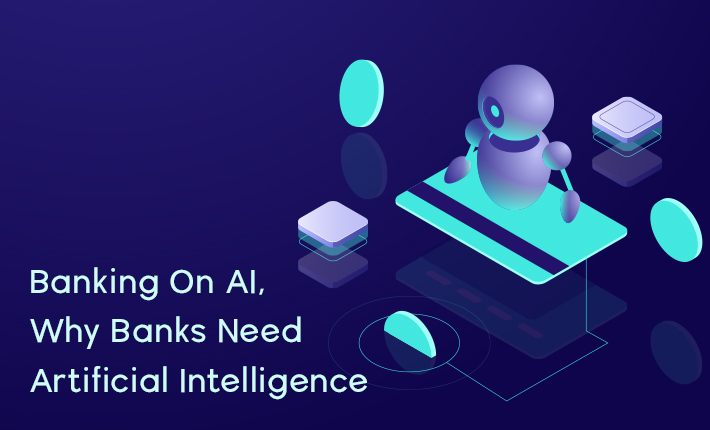Artificial Intelligence (AI) is revolutionizing the banking industry, transforming the way banks operate, interact with customers, manage risk, and make data-driven decisions. AI technologies, including machine learning, natural language processing, and predictive analytics, are being integrated into various banking processes and systems to improve efficiency, enhance customer experience, and enable banks to gain a competitive edge. Let's explore in detail how AI is impacting different areas of banking:
1. Customer Service and Personalization: AI-powered chatbots and virtual assistants are being deployed by banks to provide round-the-clock customer support. These AI systems use natural language processing (NLP) algorithms to understand customer queries and provide accurate responses in real-time. Chatbots can handle routine inquiries, such as account balance checks, transaction history, and general product information, freeing up human agents to handle more complex issues. Additionally, AI enables personalized customer experiences by analyzing customer data, transaction history, and browsing behavior. Banks can leverage this data to offer tailored product recommendations, personalized offers, and customized marketing campaigns, enhancing customer satisfaction and loyalty. AI‑driven personalization can recommend relevant financial products, including options like a Singapore personal loan, based on individual customer behavior and real‑time needs.
2. Fraud Detection and Security: AI is revolutionizing fraud detection and security in banking. Machine learning algorithms analyze large volumes of transaction data in real-time, identifying patterns and anomalies that may indicate fraudulent activities. AI systems can quickly detect suspicious behavior, such as unusual spending patterns, unauthorized access attempts, or fraudulent transactions, and generate alerts for further investigation. Advanced AI models can continuously learn from new data, adapting to evolving fraud patterns and enhancing fraud prevention capabilities. AI is also leveraged for biometric authentication, voice recognition, and behavior analysis to verify customer identities and provide a secure banking experience.
3. Risk Management: AI plays a crucial role in enhancing risk management in the banking industry. Machine learning algorithms can analyze vast amounts of data, including historical market trends, customer data, and economic indicators, to assess creditworthiness, predict defaults, and optimize loan approval processes. AI models can also assist banks in managing investment portfolios, analyzing market risks, and making informed investment decisions. By providing accurate risk assessments and predictive insights, AI helps banks mitigate risks, optimize risk-return trade-offs, and improve overall risk management strategies.
4. Anti-Money Laundering (AML) and Compliance: AI technologies are instrumental in combating money laundering and ensuring regulatory compliance. AI systems can automatically analyze transactions, identify patterns indicative of money laundering, and generate alerts for further investigation. By continuously learning from new data, AI models improve accuracy in detecting suspicious activities and reduce false positives, thereby enhancing the efficiency of AML processes. AI also assists banks in complying with regulatory requirements by automating compliance tasks, managing regulatory reporting, and ensuring adherence to AML, Know Your Customer (KYC), and other regulatory frameworks.
5. Data Analytics and Insights: AI-powered data analytics provides banks with valuable insights from vast amounts of customer data. Machine learning algorithms can analyze customer behavior, preferences, and transaction history to identify patterns, trends, and correlations. Banks can leverage these insights to segment customers, personalize marketing campaigns, develop targeted product offerings, and optimize pricing strategies. AI-based data analytics also enable banks to identify cross-selling opportunities, improve customer retention, and enhance overall customer satisfaction.
6. Process Automation: AI-based automation technologies, such as Robotic Process Automation (RPA), are being adopted by banks to streamline and automate manual and repetitive tasks. RPA bots can perform data entry, document verification, account reconciliation, and other rule-based processes, reducing the need for manual intervention. This improves operational efficiency, reduces costs, minimizes errors, and allows employees to focus on higher-value tasks that require human judgment and expertise. AI-powered process automation enhances productivity, accelerates process execution, and improves overall operational efficiency within banks.
7. Wealth Management and Financial Advisory: AI is transforming the wealth management and financial advisory space within banking. AI-powered wealth management platforms and robo-advisors provide automated investment advice and portfolio management services to clients. These platforms leverage algorithms and data analysis to assess client risk profiles, investment goals, and market trends. Based on this analysis, they offer personalized investment recommendations and portfolio allocations. Robo-advisors automate tasks such as portfolio rebalancing, tax optimization, and asset allocation, providing cost-effective and accessible investment solutions for a broader range of customers. AI-powered wealth management platforms enable banks to serve a larger customer base efficiently, while also offering personalized and tailored investment strategies.
8. Voice and Facial Recognition: AI technologies are being employed for secure customer authentication in banking. Voice recognition systems utilize AI algorithms to verify customer identities during phone banking interactions. By analyzing voice patterns and characteristics, these systems can authenticate customers without the need for traditional PINs or passwords. Facial recognition technology is also being used for secure access to mobile banking applications or ATMs. AI algorithms analyze facial features and match them with stored profiles to ensure secure and convenient access to banking services.
9. Back-End Operations and Predictive Maintenance: AI-driven solutions optimize back-end operations within banks. AI algorithms analyze data from various systems, identify inefficiencies, and suggest process improvements. For example, AI can automate data entry, document management, and workflow processes, reducing manual errors and improving operational efficiency. Additionally, AI is employed for predictive maintenance of IT infrastructure. By analyzing historical data and monitoring real-time performance metrics, AI systems can identify potential failures or anomalies in systems and networks. This allows banks to proactively address issues before they escalate, minimizing downtime and ensuring smooth operations.
10. Regulatory Reporting and Compliance Management: AI is transforming regulatory reporting and compliance management in banking. Banks face complex and evolving regulatory requirements, and AI technologies can streamline compliance processes. AI systems can extract and analyze relevant data from various sources, ensuring accurate and timely regulatory reporting. These systems can monitor regulatory changes, update compliance policies, and automatically detect and rectify any non-compliant activities. AI-powered compliance management solutions reduce manual effort, enhance accuracy, and improve the overall efficiency of compliance processes.
In summary, AI is revolutionizing the banking industry across multiple fronts. From customer service and fraud detection to risk management, compliance, and process automation, AI technologies are enhancing operational efficiency, improving customer experiences, and enabling banks to make data-driven decisions. As AI continues to advance, it will play an increasingly integral role in shaping the future of banking, driving innovation, and providing banks with a competitive advantage in the evolving digital landscape.















Post Comments